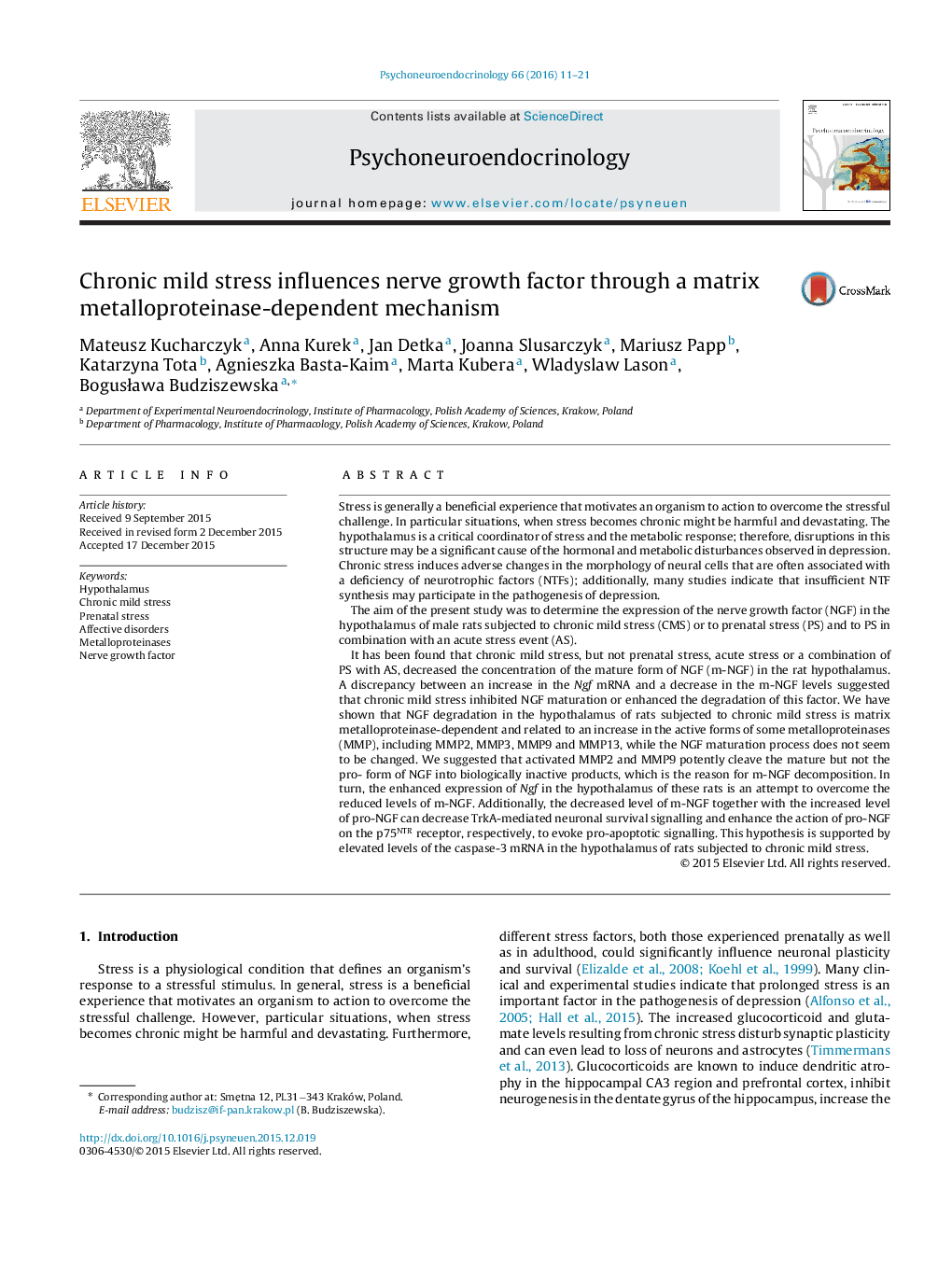| Article ID | Journal | Published Year | Pages | File Type |
|---|---|---|---|---|
| 336307 | Psychoneuroendocrinology | 2016 | 11 Pages |
•Chronic mild stress leads to behavioral disturbances.•Chronic mild stress, but not prenatal stress alters NGF breakdown in hypothalamus.•Matrix metalloproteinases are involved in the nerve growth factor decomposition.•Chronic stress enhanced the degradation of m-NGF and the accumulation of pro-NGF.•Accumulated pro-NGF adversely affects the function of the hypothalamus.
Stress is generally a beneficial experience that motivates an organism to action to overcome the stressful challenge. In particular situations, when stress becomes chronic might be harmful and devastating. The hypothalamus is a critical coordinator of stress and the metabolic response; therefore, disruptions in this structure may be a significant cause of the hormonal and metabolic disturbances observed in depression. Chronic stress induces adverse changes in the morphology of neural cells that are often associated with a deficiency of neurotrophic factors (NTFs); additionally, many studies indicate that insufficient NTF synthesis may participate in the pathogenesis of depression.The aim of the present study was to determine the expression of the nerve growth factor (NGF) in the hypothalamus of male rats subjected to chronic mild stress (CMS) or to prenatal stress (PS) and to PS in combination with an acute stress event (AS).It has been found that chronic mild stress, but not prenatal stress, acute stress or a combination of PS with AS, decreased the concentration of the mature form of NGF (m-NGF) in the rat hypothalamus. A discrepancy between an increase in the Ngf mRNA and a decrease in the m-NGF levels suggested that chronic mild stress inhibited NGF maturation or enhanced the degradation of this factor. We have shown that NGF degradation in the hypothalamus of rats subjected to chronic mild stress is matrix metalloproteinase-dependent and related to an increase in the active forms of some metalloproteinases (MMP), including MMP2, MMP3, MMP9 and MMP13, while the NGF maturation process does not seem to be changed. We suggested that activated MMP2 and MMP9 potently cleave the mature but not the pro- form of NGF into biologically inactive products, which is the reason for m-NGF decomposition. In turn, the enhanced expression of Ngf in the hypothalamus of these rats is an attempt to overcome the reduced levels of m-NGF. Additionally, the decreased level of m-NGF together with the increased level of pro-NGF can decrease TrkA-mediated neuronal survival signalling and enhance the action of pro-NGF on the p75NTR receptor, respectively, to evoke pro-apoptotic signalling. This hypothesis is supported by elevated levels of the caspase-3 mRNA in the hypothalamus of rats subjected to chronic mild stress.
